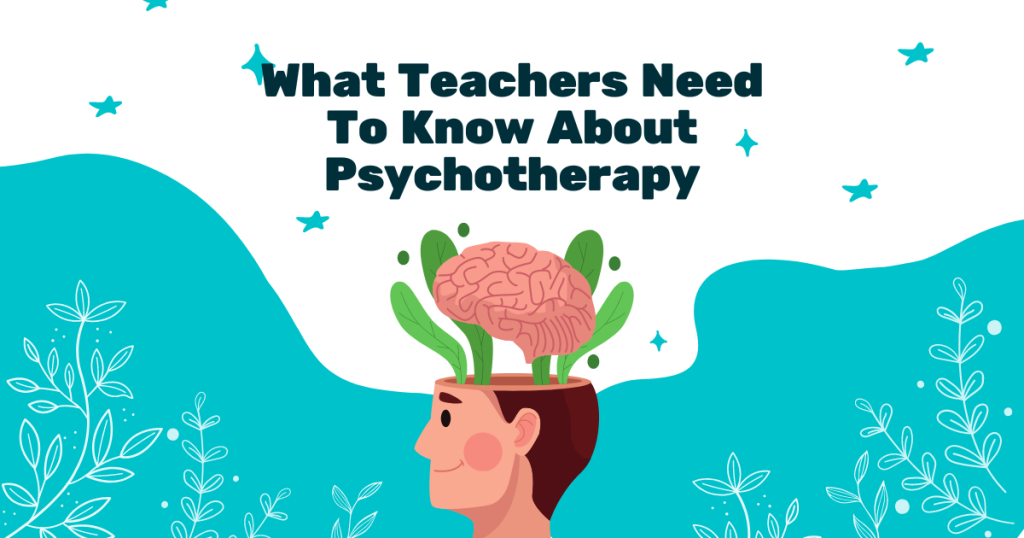As a teacher, your life typically revolves around education. What can you teach, what can you learn, and how to implement various education theories. Despite the abundance of education and learning, there always seems to be more to learn and teach.
In recent years, education boards encouraged teachers to learn more about mental health for their benefit and the benefit of their students. By learning more about mental health and therapy, teachers can help students with anxiety and inform parents of concerns.
To better educate your students and to become a better teacher, find out why psychotherapy is prevalent in the education field. Discover why you may benefit from psychotherapy and how you can get the help you may not know you need.
Table of Contents
What is Psychotherapy?
According to the National Institutes of Health (NIH),
“Psychotherapy (sometimes called “talk therapy”) is a term for a variety of treatment techniques that aim to help a person identify and change troubling emotions, thoughts, and behavior.”
In other words, talk therapy is a place for patients and mental health professionals to discuss and explore the patient’s concerns. A mental health professional could include a therapist, psychologist, or psychiatrist. The professional is determined based on the patient’s issue.
There are many reasons that someone may attend psychotherapy. They may be experiencing intense mood swings, intrusive thoughts that disrupt their daily life, or erratic behavior that can’t seem to control. Other reasons may include someone’s inability to cope with life’s changes.
Is Psychotherapy Easily Accessible?
Many teachers and students won’t consider psychotherapy because they are afraid that it isn’t easily accessible. With busy lifestyles and very little time, it can feel overwhelming to save time for talk therapy. However, talk therapy is extremely accessible!
With the advancement of technology at our fingertips, we can easily access various forms of psychotherapy. Most people assume that the only form of therapy is sixty-minute, in-person sessions. However, you can also speak to a mental health professional via video calls, instant messaging, and phone calls.
Consider reading more about psychotherapy, its accessibility, and the impact it can have on your mental health. You can talk to a professional in a variety of ways. This is great for teachers who have very little free time in their life.
Common Reasons Teachers Should Attend Psychotherapy
Teaching can be a very rewarding and stressful job. Most parents and students see your passion and capabilities in educating your class. But they don’t see the late nights, challenging situations, frustrating coworkers, and unwilling students.
Psychotherapy is a great way to address these common concerns for teachers. With talk therapy, you and your mental health professional can discuss things that weigh you down and any hardships you are experiencing. A therapist can help you address these concerns and they can teach you some valuable lessons!
How is Psychotherapy Beneficial?
When things get too hard in life, we often find it hard to manage. Talk therapy can teach you how to manage these times in your life. Not only will you learn how to cope with stress and anxiety, but you will also become a better teacher!
Consider this: a young teacher dealing with burnout, fatigue, and family issues at home. With all of this in her life, she may come to school tired, unprepared, and unable to properly teach her students. If she attended talk therapy, she would have someone to talk to about these problems. Her therapist could suggest breathing techniques to alleviate stress and journaling prompts to clear her mind. In some cases, mental health professionals can also prescribe medications to help manage symptoms of mental health disorders.
By attending psychotherapy, you can learn how to cope with stressful situations. This will make you a much better teacher. A teacher that attends talk therapy is more likely to come to school refreshed, encouraged, and supported! Consider psychotherapy for the benefit of your well-being and students.
